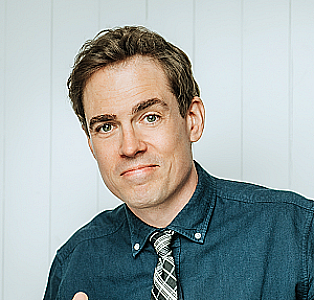Audiobook (Non Fiction)
Description
Vocal Characteristics
Language
EnglishVoice Age
Young Adult (18-35)Accents
North American (General)Transcript
Note: Transcripts are generated using speech recognition software and may contain errors.
Chapter four. The brain. The brain is wider than the sky for put them side by side, the one the other will include with ease and you beside Emily Dickinson, The most extraordinary thing in the universe is inside your head. You could travel through every inch of outer space and quite possibly nowhere. Find anything as marvelous and complex and high functioning as the £3 of spongy mass between your ears. For an object of pure wonder, the human brain is extraordinarily unprepossessing. It is, for one thing, 75 to 85% water, with the rest split mostly between fat and protein. Pretty amazing that three such mundane substances can come together in a way that allows us thought and memory and vision and aesthetic appreciation and all the rest. If you were toe lift your brain out of your skull, you would almost certainly be surprised at how soft it ISS. The consistency of the human brain has been variously likened to tofu soft butter or a slightly overcooked jello pudding. The great paradox of the brain is that everything you know about the world is provided to you by an organ that itself has never seen that world. The brain exists in silence and darkness, like a dungeon prisoner. It has no pain receptors, literally no feelings. It has never felt warm sunshine or a soft breeze to your brain. The world is just a stream of electrical pulses, like taps of Morse code and out of this bear, and neutral information it creates for you, quite literally creates a vibrant, three dimensional, essentially engaging universe. Your brain is you. Everything else is just plumbing and scaffolding, just sitting quietly doing nothing at all. Your brain turns through more information in 30 seconds than the Hubble Space Telescope has processed in 30 years. A morsel of cortex one cubic millimeter in size, about the size of a grain of sand can hold together 2000 terabytes of information, enough to store all of the movies ever made, trailers included, or about 1.2 billion copies of this book. Altogether, the human brain is estimated to hold something on the order of 200 exabytes of information roughly equal to the entire digital content of today's world. If that is not the most extraordinary thing in the universe, then we have some wonders yet to find
